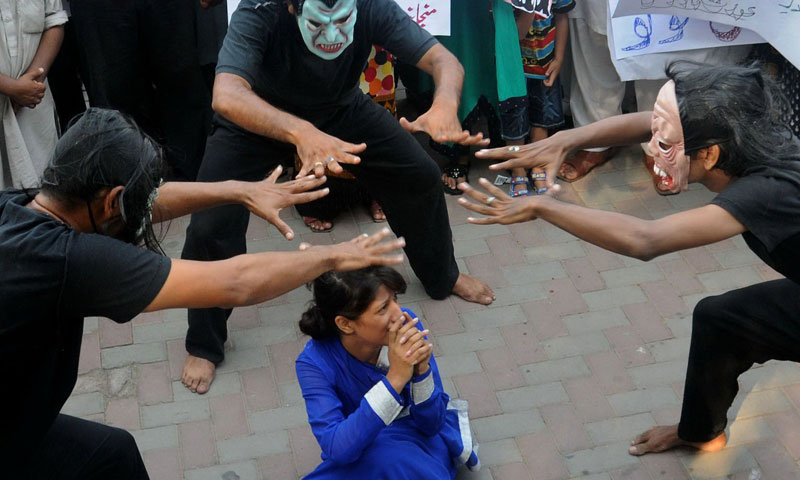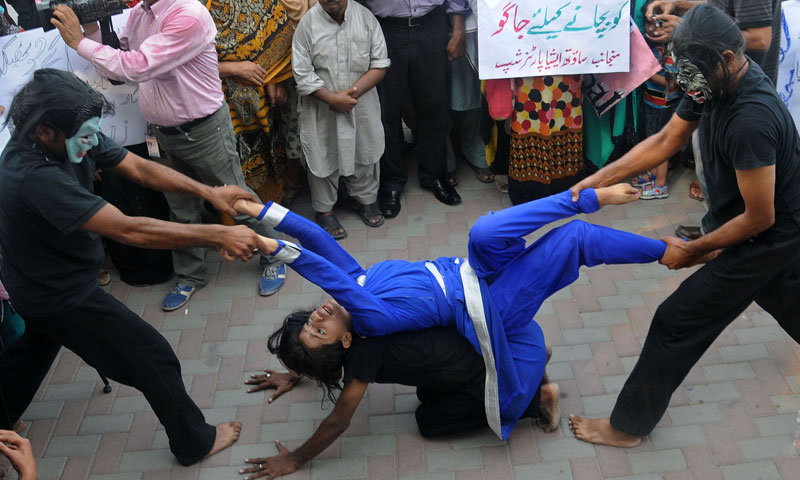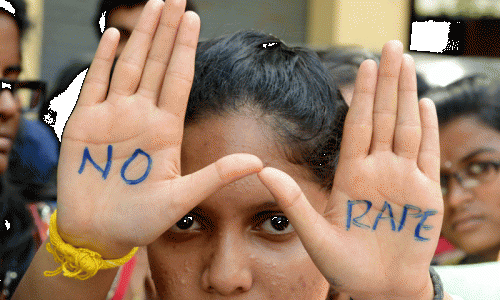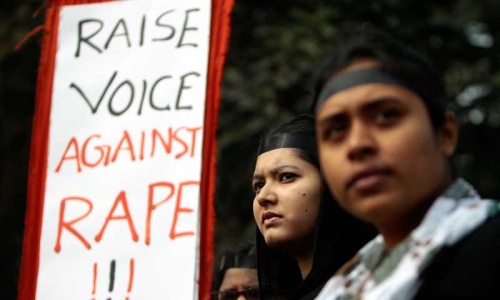LAHORE: Rights campaigners staged protest rallies across Pakistan on Sunday against the rape of a five-year old girl in the eastern city of Lahore whose condition is now relatively stable.
Police still have no clue who carried out the attack despite detaining several suspects and releasing most of them after questioning, a law enforcement official said.
The five-year old girl was kidnapped on Thursday and brutally raped in Lahore.
Police said the girl was found outside Sir Ganga Ram Hospital at around 8pm (1500 GMT) on Friday, a day after she went missing from a low-income neighbourhood in the city.
“Her condition is relatively stable but still she is in the Intensive Care Unit,” doctor Farzand Ali, medical superintendent in the Services Hospital told AFP.
Senior police officer Zulfiqar Hameed said investigators had questioned several suspects but have yet to formally arrested anyone. “We are investigating and we hope steady progress [is being made] but no one has yet been identified nor anyone formally arrested,” Hameed told AFP.
Doctors earlier said the child was raped several times.
Rights campaigners and workers from NGOs on Saturday and Sunday staged protest rallies across Pakistan and demanded the arrest of the culprits, witnesses said.
Widespread outrage dominated social media while Pakistan private TV channels prominently broadcast reports on the girl and her ordeal.
Rape is notoriously difficult to prosecute in Pakistan, where women are often treated as second-class citizens.
In April 2011, the Supreme Court upheld the acquittal of five men sentenced to death in Pakistan's most famous rape case, that of Mukhtar Mai.
Mai was gang raped in 2002 on the orders of a village council as punishment, after her brother, who was aged just 12 at the time, was accused of having illicit relations with a woman from a rival clan.
A local court had sentenced six men to death, but a higher court acquitted five of them in March 2005, and commuted the sentence for the main accused, Abdul Khaliq, to life imprisonment.
In neighbouring India, a judge on Friday sentenced to death four men convicted of the fatal gang rape and murder of a student on a New Delhi bus last December, fulfilling the last wish of the 23-year-old victim who later died of her injuries.
The December attack, in which the student was repeatedly raped and assaulted with a metal rod, sparked widespread anger at the treatment of women in India.
















































